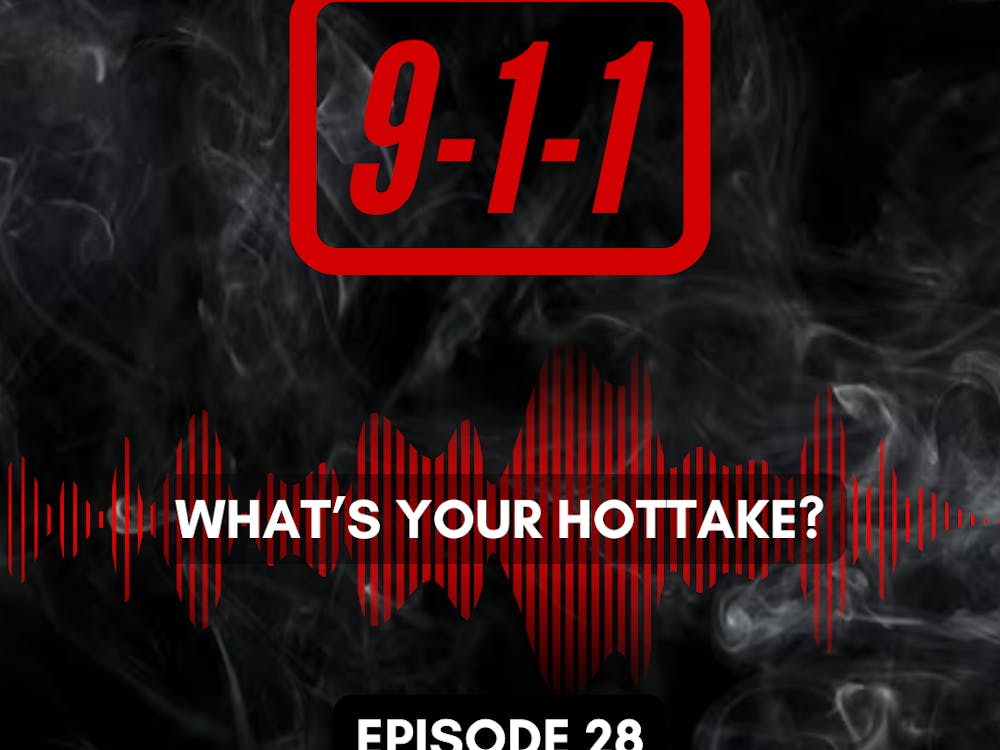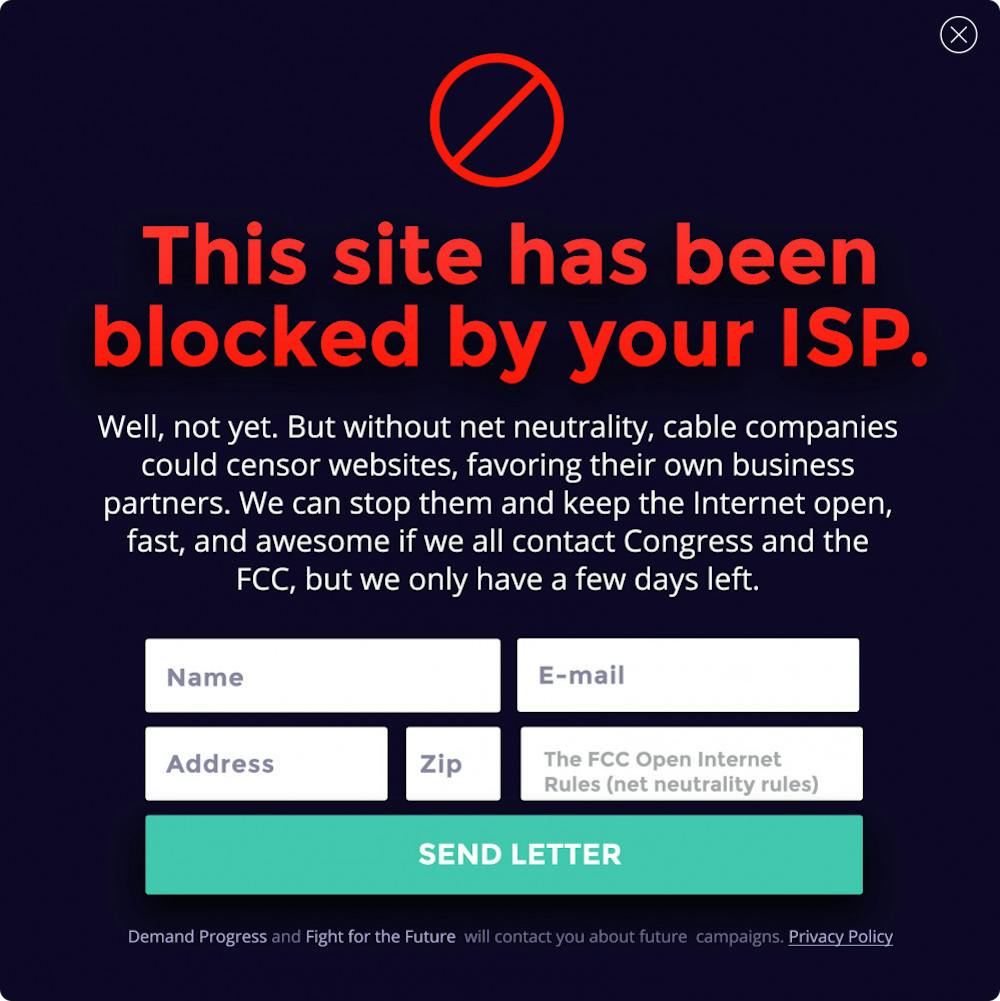by Daley Wilhelm
Back in 2012, the Stop Online Privacy Act (SOPA) and the PROTECT IP Act (PIPA) were proposed and vehemently protested online, since the implications of these bills included infringement of free speech online and an attack on user-generated content on platforms like Tumblr and Reddit.
Reddit, English Wikipedia, and other sites shut down temporarily and redirected users to a message opposing the legislation. More than 100,000 sites participated in this protest, and by the end of January the bills were “shelved.”
Today, something very similar to 2012’s fight is happening in the form of the Day of Action: a mass protest in favor of upholding Net Neutrality in the face of current attitudes toward its repeal by the FCC and large Internet Service Providers such as Comcast.
 All over the Internet, sites are participating through banner ad informing visitors of the seriousness of the issue at hand, or in the case of Reddit, demonstrating through a slow-loading pop up message how the repeal of Net Neutrality could affect the average user.
In Twitter’s trending tags, #NetNeutrality, complete with a buffering emoji, has been promoted by the company and posted a policy blog post supporting the movement. Netflix also featured the infamous buffering circle in a banner message directing viewers to “Protest Internet Freedom. Defend Net Neutrality.” Twitch also has a prominent red banner and slow-loading emotes for the Day of Action.
All over the Internet, sites are participating through banner ad informing visitors of the seriousness of the issue at hand, or in the case of Reddit, demonstrating through a slow-loading pop up message how the repeal of Net Neutrality could affect the average user.
In Twitter’s trending tags, #NetNeutrality, complete with a buffering emoji, has been promoted by the company and posted a policy blog post supporting the movement. Netflix also featured the infamous buffering circle in a banner message directing viewers to “Protest Internet Freedom. Defend Net Neutrality.” Twitch also has a prominent red banner and slow-loading emotes for the Day of Action.
 Some sites like Rosetta Stone and The Internet Archive have taken protest a step further by featuring a pop up box where users can enter their information to send a letter of protest to the US Congress and the FCC.
Giants like Amazon and Google have also made statements in favor of net neutrality. Google released a blog saying,
Some sites like Rosetta Stone and The Internet Archive have taken protest a step further by featuring a pop up box where users can enter their information to send a letter of protest to the US Congress and the FCC.
Giants like Amazon and Google have also made statements in favor of net neutrality. Google released a blog saying,
Today’s open internet ensures that both new and established services, whether offered by an established internet company like Google, a broadband provider, or a small startup, have the same ability to reach users on an equal playing field. It’s an important chapter in this debate, and we hope you’ll make your voice heard.The Internet blackout of 2012 worked to stop Internet-hampering legislation, but it remains to be seen if today’s fight will make the same impact.


















